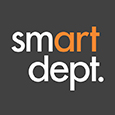7 Questions Great Candidates Ask
At the end of the interview when you, the interviewer, ask the candidate, “Do you have any questions for us?” it’s often hard to know what to expect. Will the candidate ask a couple of superficial questions just to be polite, or will he or she ask deep, probing questions?
If a candidate appears to be simply going through the motions at this point, this is often a sign of a candidate who is not fully engaged with your brand and the hiring process. On the other hand, a candidate who probes and asks questions of substance is a more engaged candidate. The person is trying to form a picture of your business to see if it is the right cultural fit, job fit, technical fit and career fit for him or her. This more discerning approach is likely to be taken by the best candidates. But, what questions are these more engaged candidates likely to ask and how should you respond?
Read the rest on recruiter.com!

